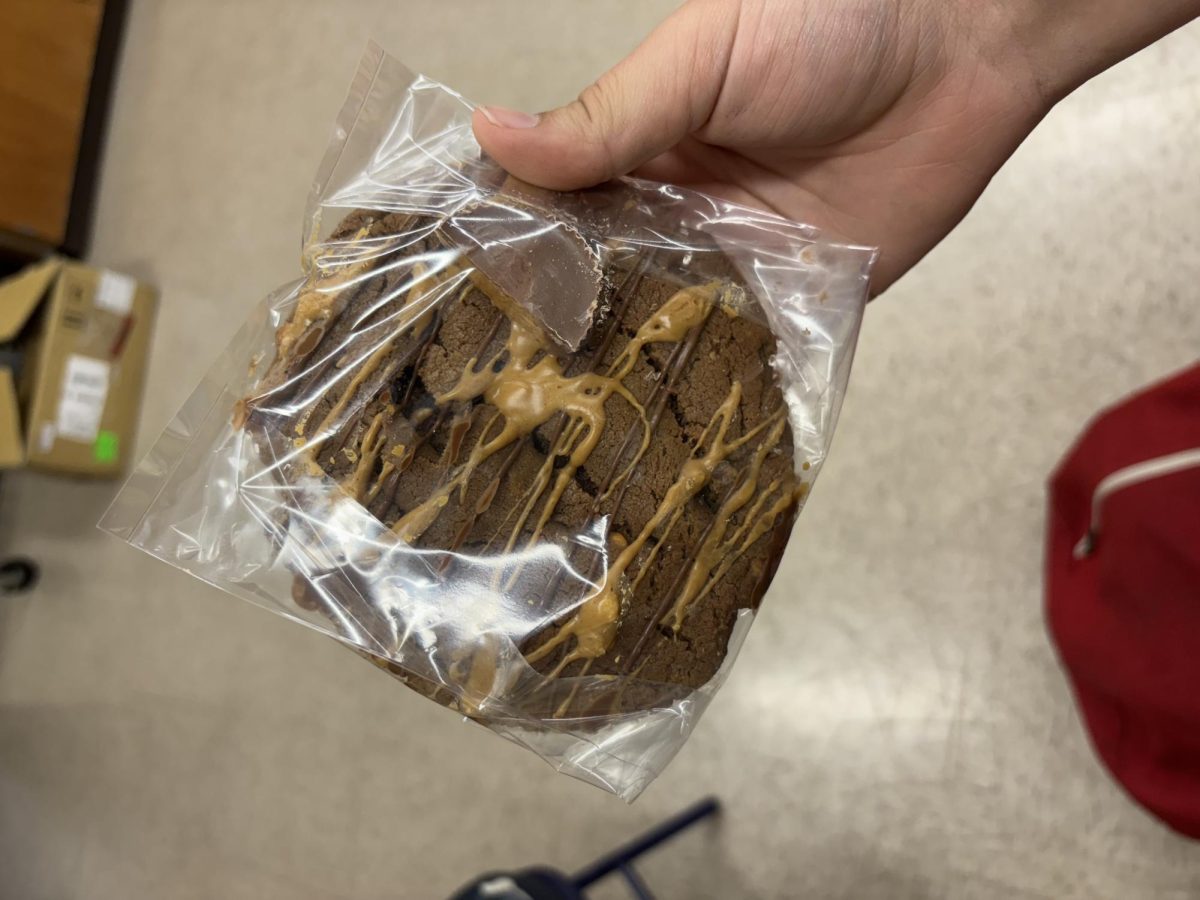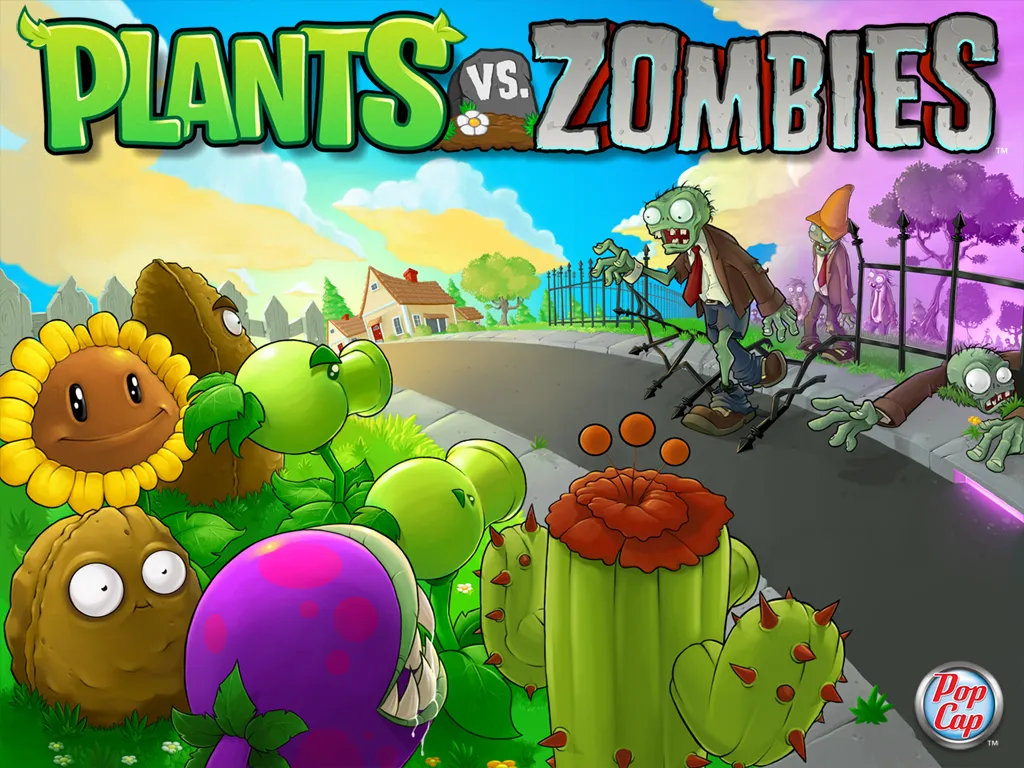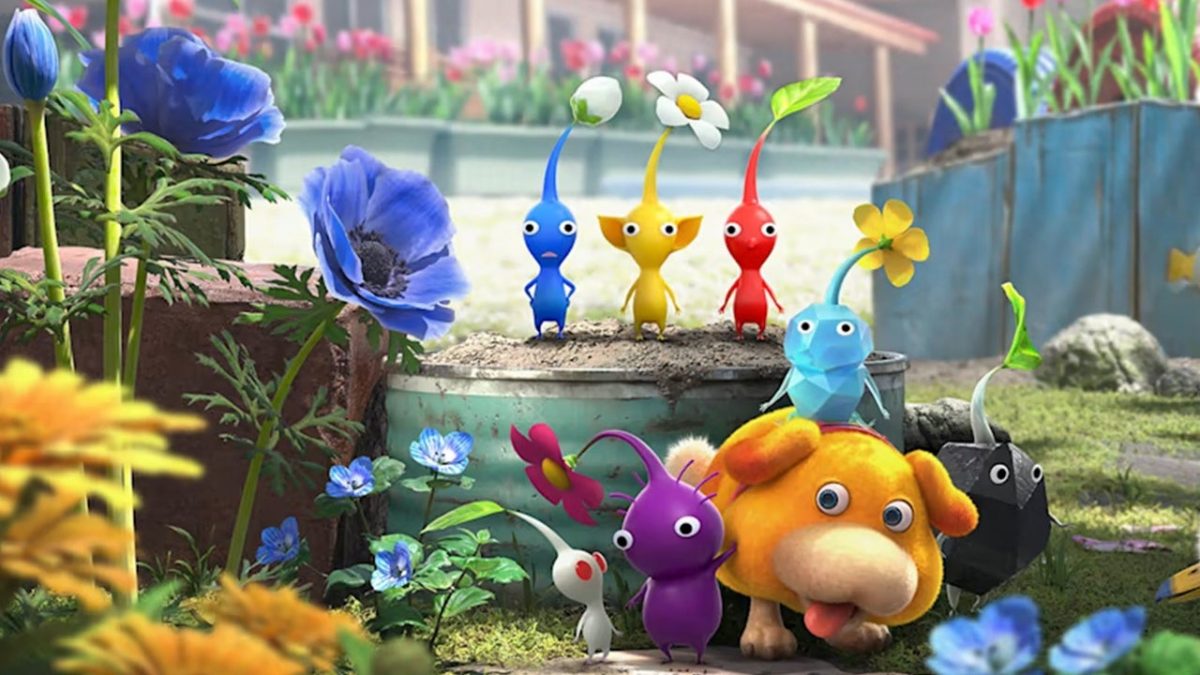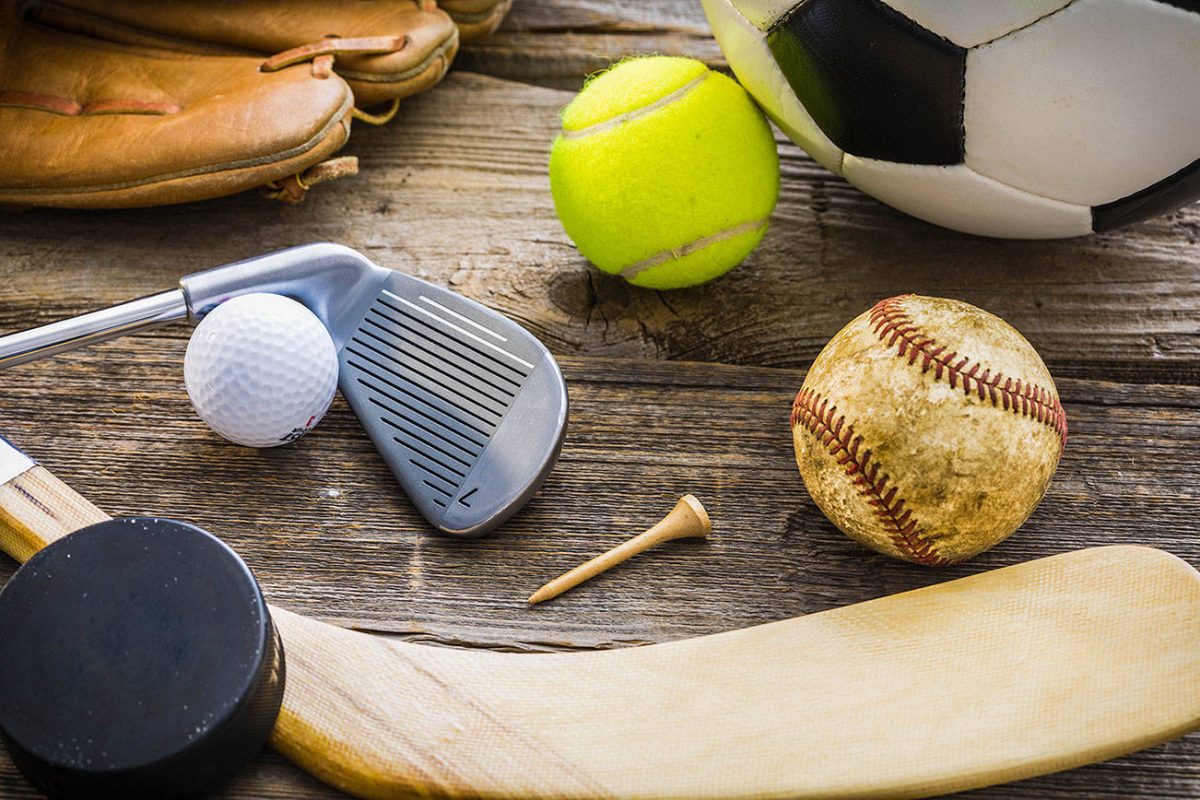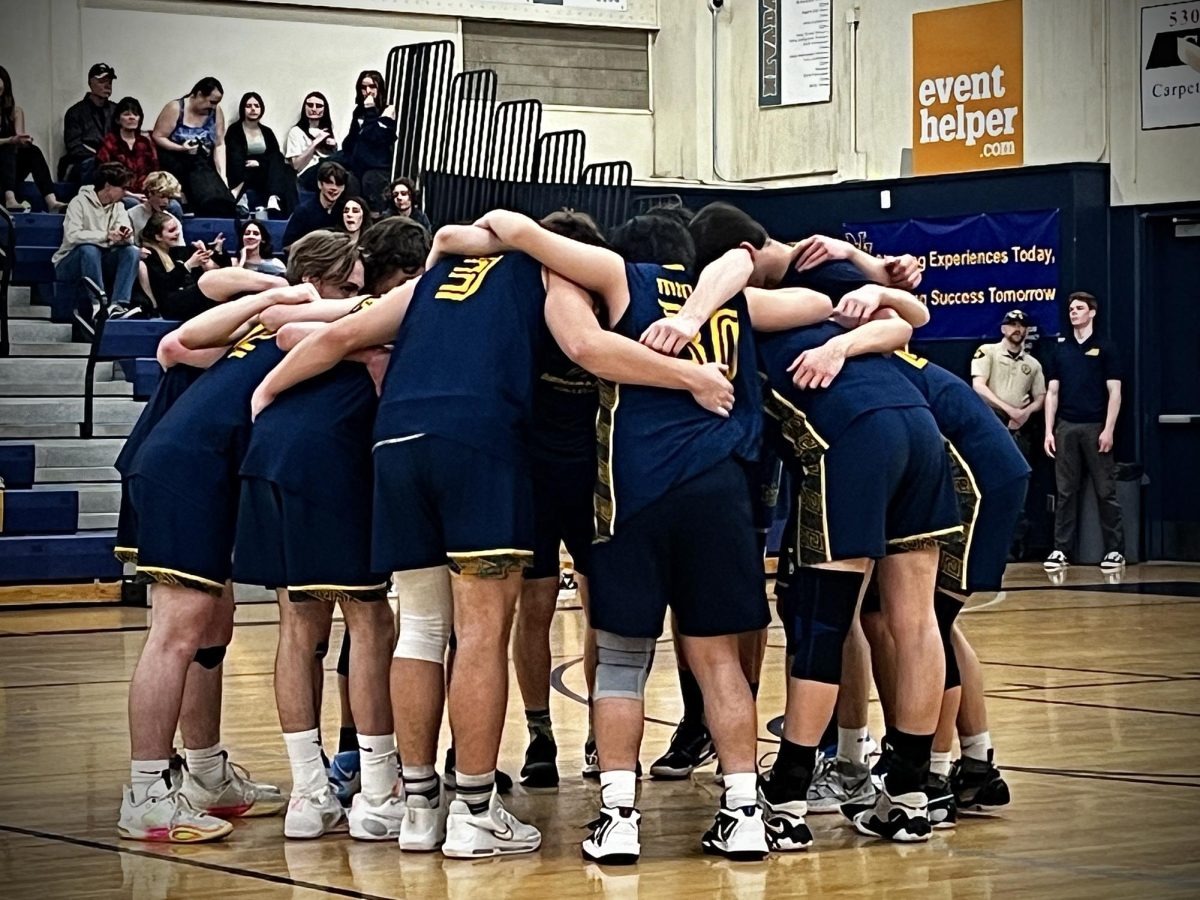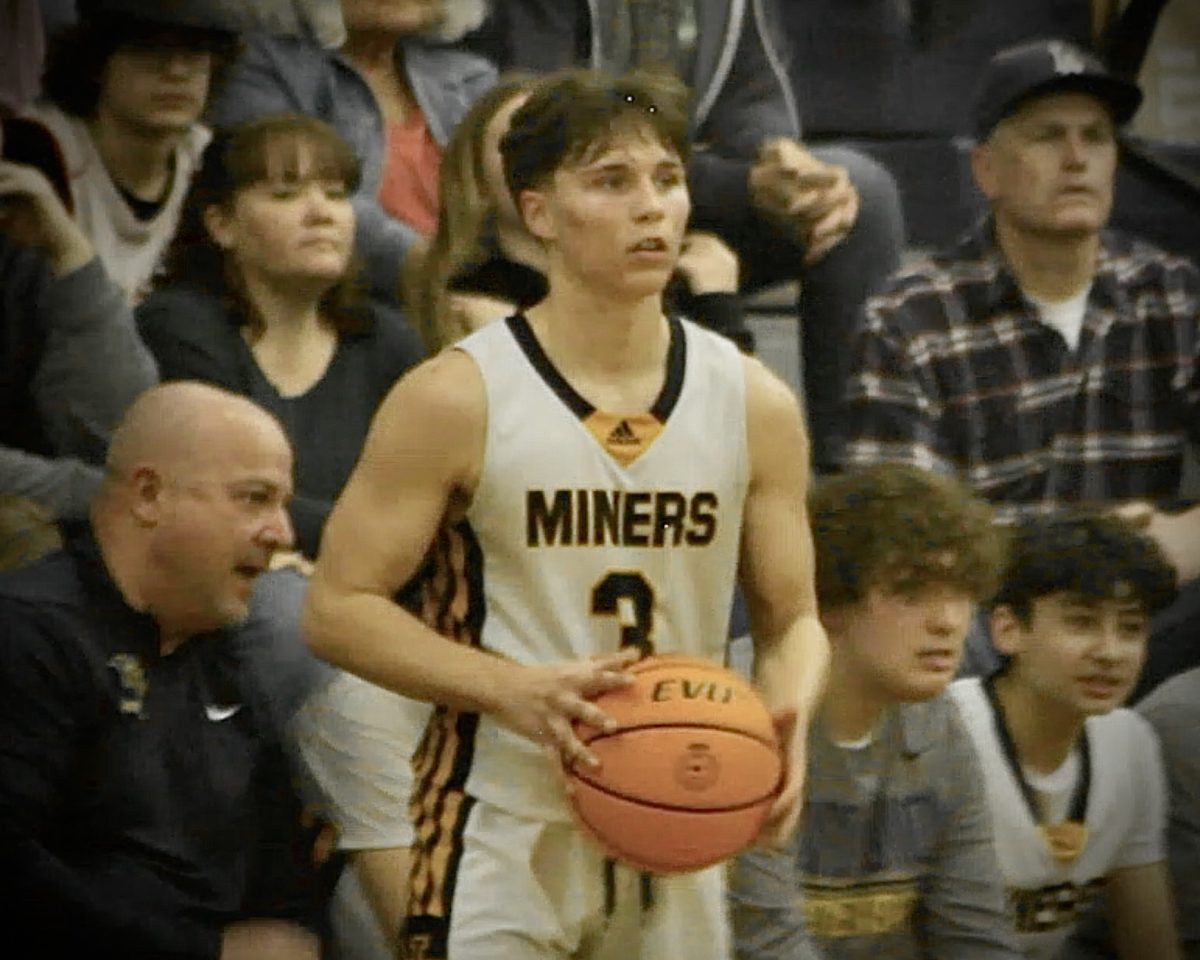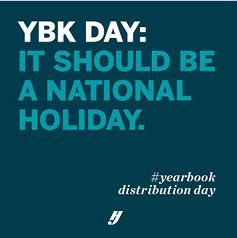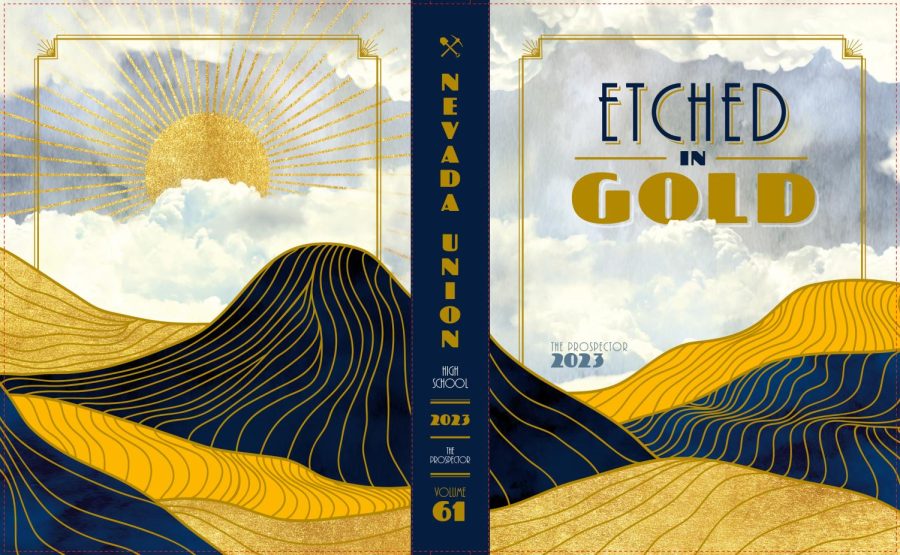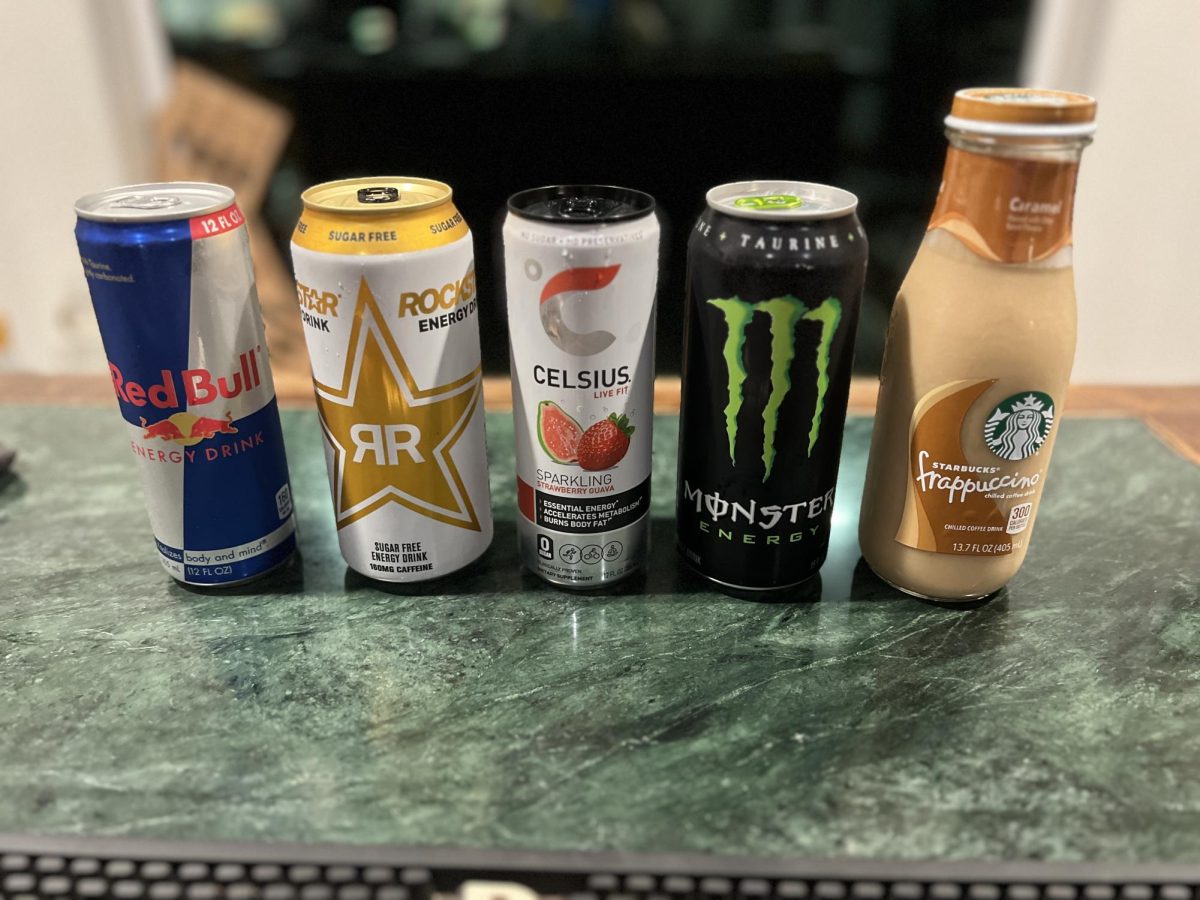Caffeine, fondly looked at as a quick “picker-upper,” a temporary fix, a way to steal a few extra hours of the night, and a heart stopper? Caffeine is a way that most students get by day to day, let alone function, but most students don’t even think twice about what is actually in the drinks that they buy.
Energy drinks, in particular, contain high amounts of theophylline and theobromine, sugars and sugar substitutes, high levels of taurine, extreme amounts of B vitamins, chemical dyes, preservatives, and more. Looking at those words, many people wouldn’t even know what most of those mean. Theophylline is used in medicines for lung diseases and theobromine is similar to caffeine aiding in the boost of energy and blood flow. Along with taurine which is a dietary supplement. Not only that, but large amounts of Vitamin B can cause side effects such as hair loss, rashes, nerve damage, nausea, etc.
Caffeine is a popular stimulant that many people consume daily without considering its effects on their health. Although caffeine provides a quick energy boost, it is highly addictive and can lead to various health problems, including cardiovascular issues, heart cancer, insomnia, weight gain, dehydration, headaches, and more.
According to Montreal Children’s Hospital, the recommended daily caffeine intake is 2.5 mg per 2 lbs. Take, for example, a 5’10, adult male weighing 170 lbs, should have no more caffeine than 212.5 mg per day, while a 5’4, adult female weighing around 120 lbs should consume just about 150 mg per day. Although that may seem like a lot, both of those examples are adults. Within the ages of 14-17, you should only consume around 100mg of caffeine per day.
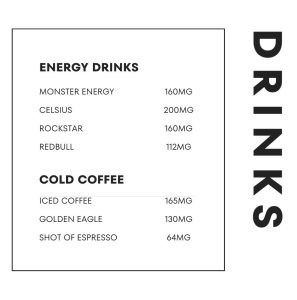
When asked about her opinion on teens and caffeine, school counselor and head basketball coach, Nicole Scott says, “I don’t think they’re very healthy [with] how your guys’ bodies are developing and growing. There are a lot of studies out there [that say] it can throw a lot of things off. Like, not only… with your growth, your heart health, it can throw off your hormones and how those things are developing. So I think for teenagers, it’s even… more impactful.”
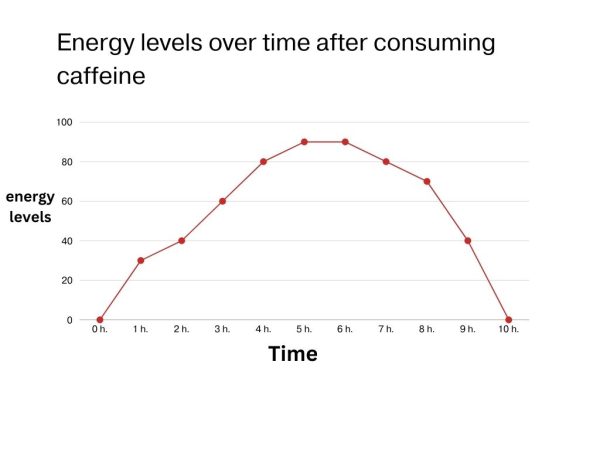
In the first hour of consuming caffeine, the effects begin to kick in and enter the bloodstream. Energy levels continue to rise for the next 4 hours when it finally reaches its peak. For the next 5 hours, energy levels begin to drop until hour 10, when energy crashes and withdrawals begin.
Many students may be annoyed reading this, where else am I supposed to get energy? One healthy alternative is Vitamin B, like the vitamin found in proteins. Proteins and carbohydrates like meats, fish, eggs, cheese, milk, potatoes, pasta, and even some breakfast cereals. Another healthy alternative is Yerba Mate, although containing caffeine, just about 80mg, Yerba Mate is considerably better than both coffee and energy drinks. Water! Your body will naturally run on its own if hydrated. Dark chocolate, dark chocolate contains a chemical that not only boosts energy but balances mood. Coconut water is rich in electrolytes and a few other nutrients that help boost mood and even support muscle function. Along with the things listed, there are an endless amount of substitutes that help with energy. Instead of drinking a harmful drink of chemicals, maybe revert to a better, more healthy way of living.
Caffeine can have ever-lasting effects on your body, especially as a still-growing adolescent. Not only can it affect your energy levels, but also your hormones and regular bodily functions. It just comes down to the final question, is it worth risking your health for a few hours of energy?






